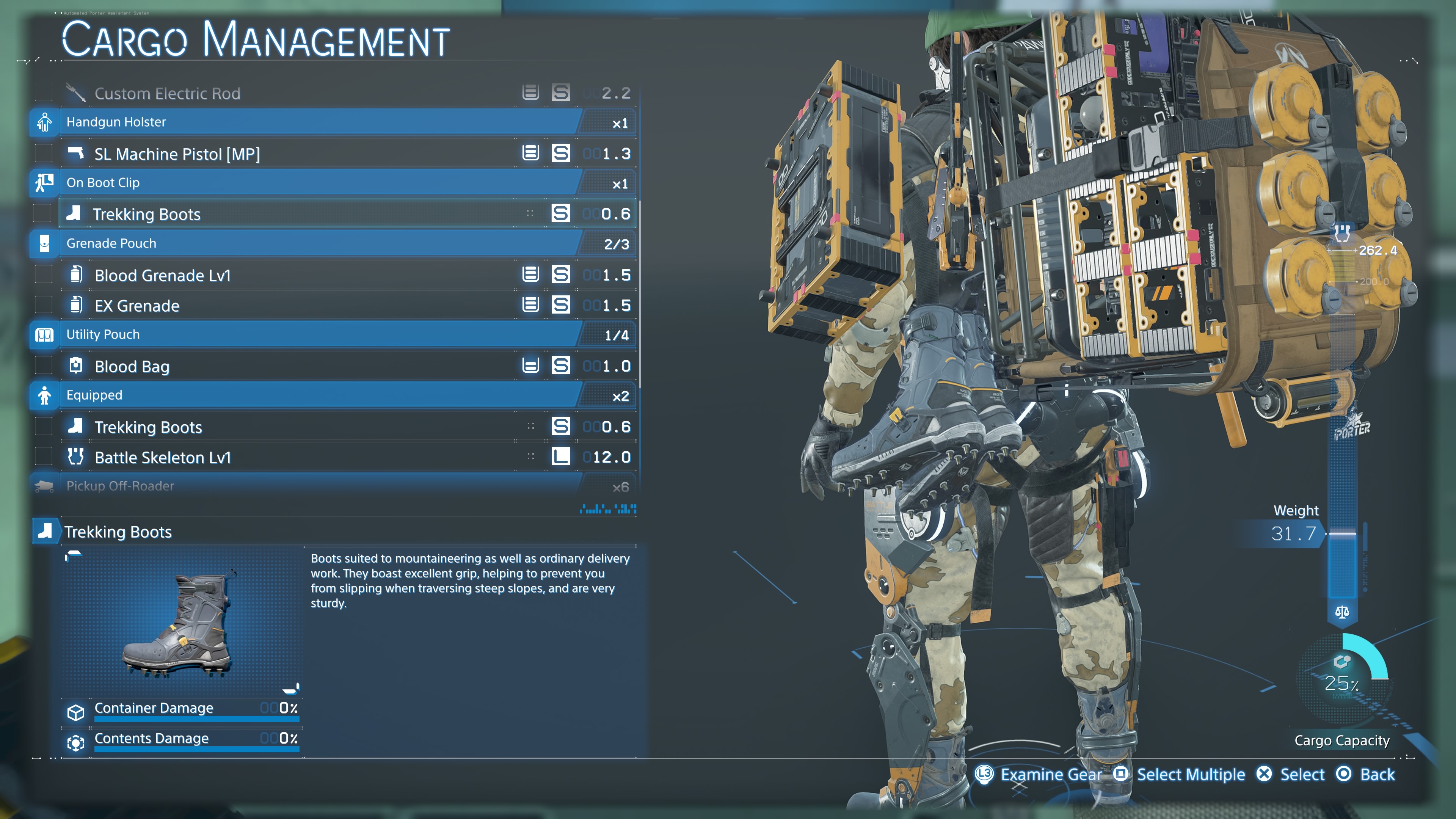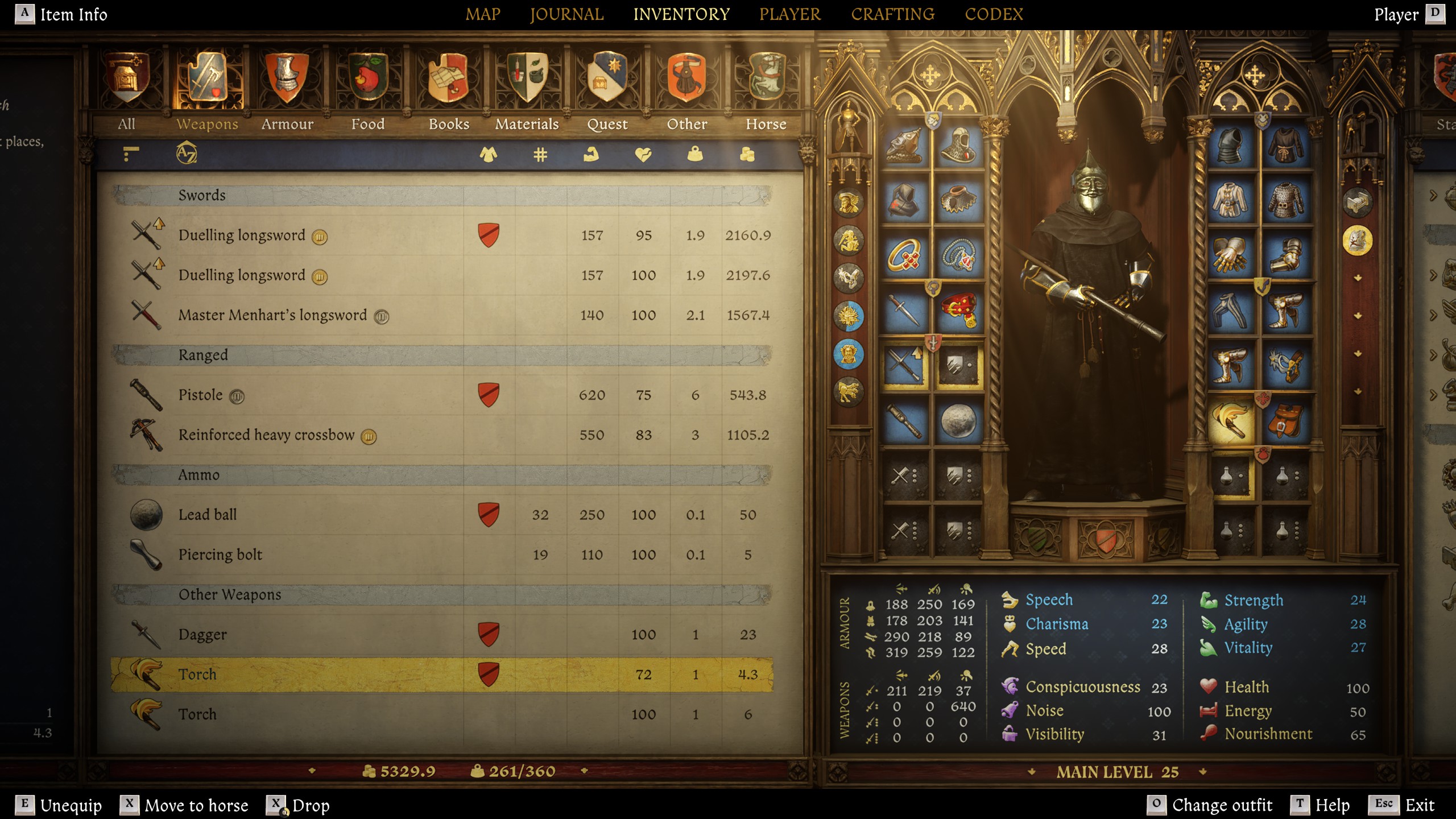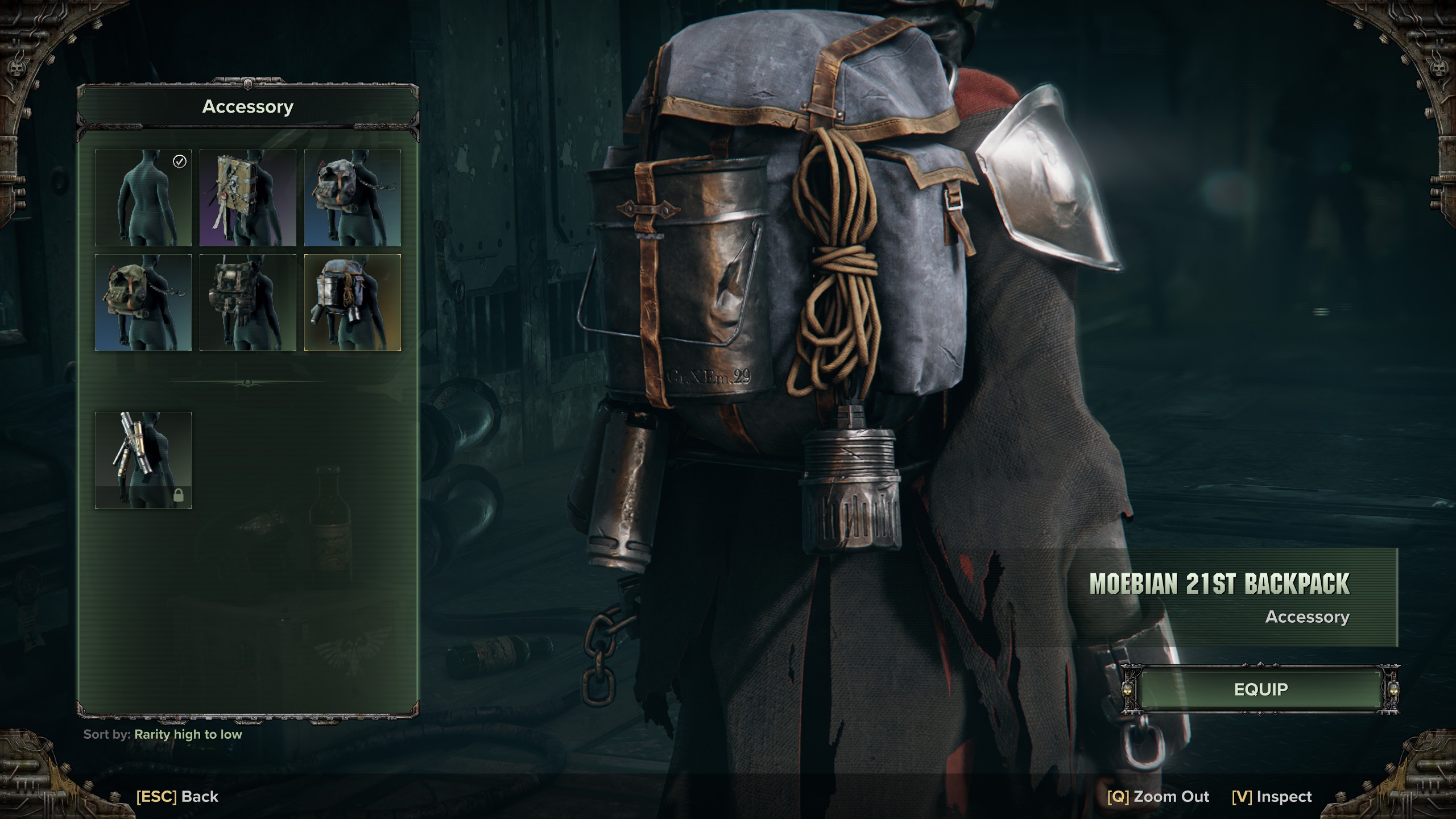We deserve better than the boring carry capacity systems 90% of RPGs give us, but games like Death Stranding 2 and Kingdom Come: Deliverance 2 show the way forward
What if we actually carried the things we carry?
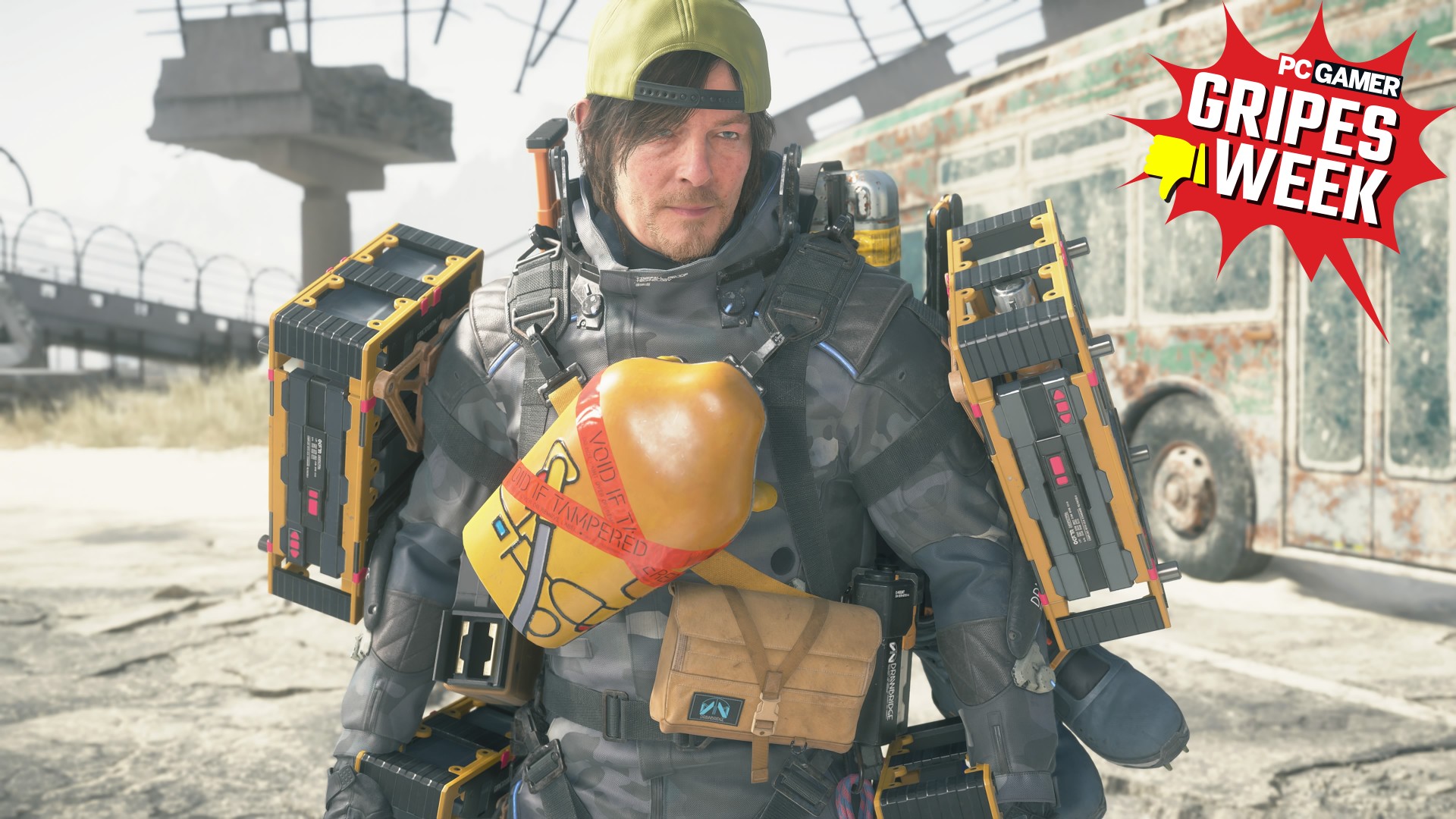
As with most RPG players who grew up around The Elder Scrolls and Fallout, I am positively rabid for loot. Take literally any item, put a big number next to it, and you can bet I'll stuff an impossible quantity of them into my knapsack before hauling my burden back to the nearest settlement to sell.
Possibly my worst loot-brain moment (apologies in advance for this) was when I stripped an entire battlefield in Kingdom Come: Deliverance, shuttling at a snail's pace back-and-forth to the nearest town, where I used my mountain of Groschen to buy the fanciest armour set and Herod's Sword.
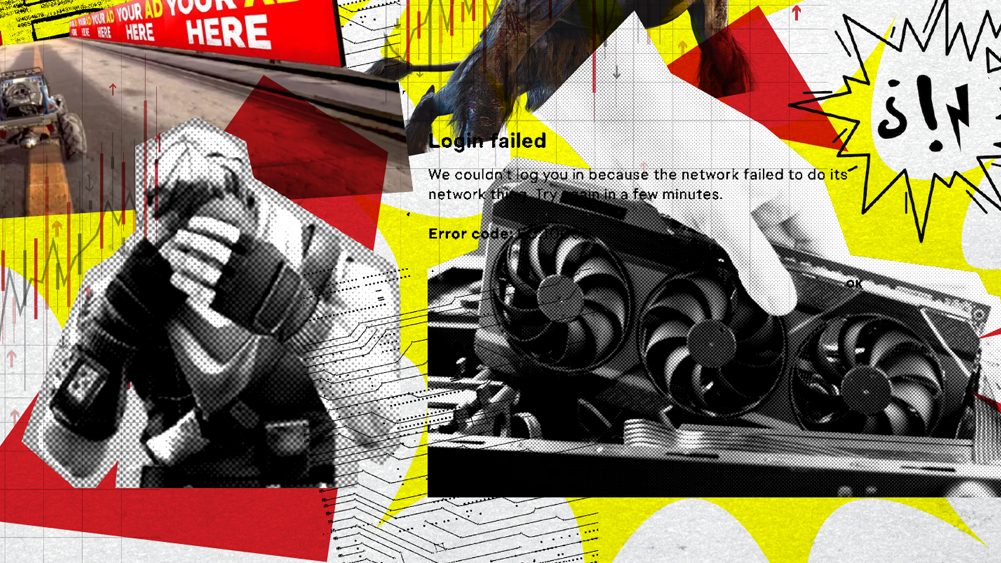
We're spending the week airing all our grievances with gaming and computing in 2025. Hit up the Gripes Week hub for more of what's grinding our gears.
While I don't regret acquiring the most OP sword in the game—on numerous occasions it killed people in friendly duels in a single hit, leaving me to awkwardly mutter "Not again" as the guards closed in—it has made me reflect on how RPG loot and carry capacity has rotted my brain. So many times I've hauled vast quantities of treasure back to settlements to amass more coinage, but is filling your gills really so meaningful?
I say no, and in fact, I go one further: carry capacity is unimaginative in a majority of RPGs. And before you ask, yes, I did play Death Stranding 2 recently, and yes, that is probably the reason I'm here writing about this. Being overencumbered is a bore—it's essentially a line of text saying "Sir, you've had enough", and pointing you in the direction of the nearest civilised hub where you can set about emptying every merchants' coffers.
In some ways it's a good mechanic, forcing you to periodically return to settlements so you'll talk to NPCs, hear the latest gossip, and acquire more quests, instead of binge-rinsing the entire world. In survival crafting games, it's an incentive to craft a backpack or build some base storage. That said, it's a boring way to represent what you carry. One incredible thing that Death Stranding 2 does is allow you to carry things your way. You can strap packages to your arms, legs, stack a teetering tower on your back, or even fold out a cute little floating trolley that you pull behind you on a lead.
Even the most seemingly mundane elements can be turned into a satisfying part of the simulation.
In allowing you to customize what you're carrying, it personalises loot and carry capacity, making it almost cosmetic, as you strap what you want, where you want. It also reflects your playstyle, as you decide what's most important for you to quickly access. "But Sean (me), Death Stranding 2 is a game ABOUT carry capacity, that's its whole thing, so no RPG is going to create such a complex system just for hauling junk around." While this is 100% correct, I am convinced there's a middle ground to be had. Take a look at Kingdom Come: Deliverance 2's armour system, for instance.
With multiple rules about what layers you can equip where and when, as well as an entire social system associated with what you're wearing and the cleanliness of said gear, Kingdom Come: Deliverance 2 proves that, for an RPG, even the most seemingly mundane elements can be turned into a satisfying part of the simulation. I love taking a bath in Kingdom Come and then equipping my clothing and armour one layer at a time, like I'm getting ready to head out into the world and take on quests.
Keep up to date with the most important stories and the best deals, as picked by the PC Gamer team.
It's easy to see how a system like this could represent the groundwork for a more interesting approach to carrying gear and loot. It's something I also loved doing in Red Dead Redemption 2 and Red Dead Online, carefully curating my cowboy with a single or double holster, what long arm I wanted, and swapping out outfits for hot and cold weather. Red Dead is also great at balancing practical carry capacity with its rewards, as you strap skins and carcasses to the back of your horse, or purchase a wagon to haul even more.
One of my favorite gear and carry capacity systems actually exists in the form of a TTRPG, Blades in the Dark. In the game you play as a criminal undertaking heists in a Dishonored-esque city called Doskvol, but before every job you decide your load. Either "Light", "Normal", or "Heavy", changing both how much you carry and how inconspicuous you look—a little similar to what Kingdom Come: Deliverance 2 does.
Here's the cool part, though; you only announce items when you use them. Say someone's attacking me and I need a weapon? I announce that I have a blade and check-off one slot of my available load. While this wouldn't necessarily work in a videogame, I think it's evidence that carry capacity can be a fun and significant part of a game vs just numbers in a list.
Just having a backpack like Sam's would be a total game-changer for most RPGs.
Can you imagine how good it would be if an RPG put Death Stranding 2 levels of detail into carry capacity? Maybe you're playing a mage, adorned with countless pouches containing magic items and potion ingredients you've meticulously organised, or maybe you're a barbarian, strapping weapon after weapon to yourself like a walking armoury. You could even be a rogue, seemingly innocuous, but concealing countless hidden weapons, gadgets, and stolen goods. Even just having a backpack like Sam's would be a total game-changer for most RPGs, letting you organise your load and strap items where you want.
It feels like most games have chosen the system of least resistance: you have a number, items have a number, this is carry capacity. What I think this fails to recognise, though, is that by making gear and loot into more tangible items, you endow them with a greater sense of value. Wouldn't it be cool to tie an actual treasure chest to your back in an RPG like you're playing Sea of Thieves? Or bedeck yourself in stolen valuables like you've purchased some gaudy Diablo 4 skin? What if all those items that cosmetics and skins strap to you were actually strapped to you?
Turning loot and gear into actual carried items also encourages a more cutthroat approach to carry capacity that I think a lot of games desperately need. It's something that extraction shooters do exceptionally well, an almost "Kill your darlings" approach to gear and loot that only lets you take so much, and only gives you so much time to decide what you're taking. What seems more valuable to you? 300lbs of assorted valuables in a list, or a sack of gold slung at your waist, spilling its glittering coins onto the earth as you battle out of a dungeon.
I get that I'm asking too much for most games. It's not like carry capacity is all that important and the numbers system certainly isn't abrasive—if anything it's what we've all gotten used to. However, I'm convinced there's a more evocative version of carry capacity to be had in games—one that encourages a measured and valued approach to loot and gear vs the typical RPG "vacuuming the world empty one dungeon at a time" that we've all grown accustomed to.

Sean's first PC games were Full Throttle and Total Annihilation and his taste has stayed much the same since. When not scouring games for secrets or bashing his head against puzzles, you'll find him revisiting old Total War campaigns, agonizing over his Destiny 2 fit, or still trying to finish the Horus Heresy. Sean has also written for EDGE, Eurogamer, PCGamesN, Wireframe, EGMNOW, and Inverse.
You must confirm your public display name before commenting
Please logout and then login again, you will then be prompted to enter your display name.
